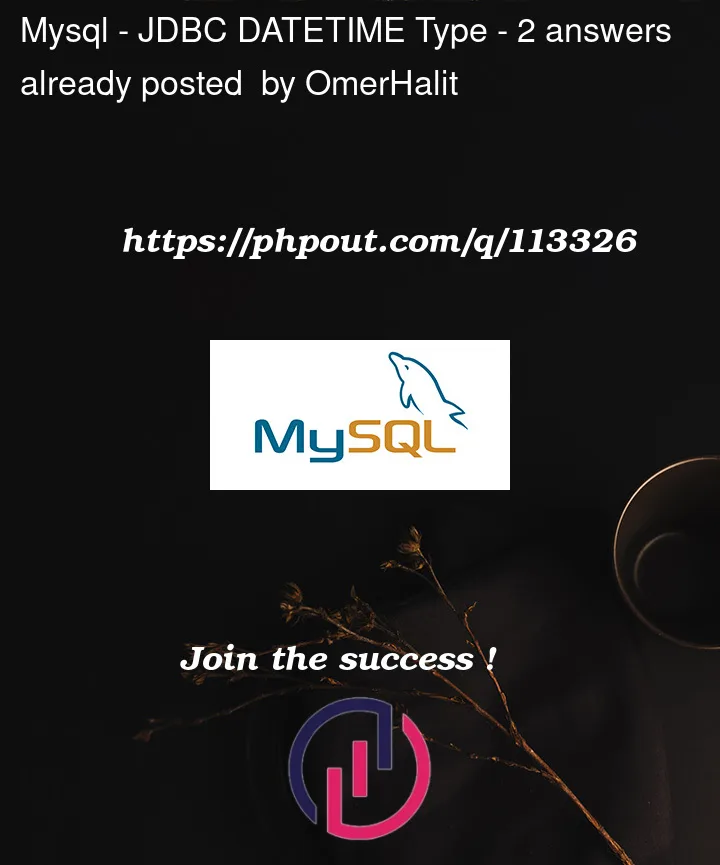I have a DATETIME column in a MySQL database. I use ResultSet metadata to retrieve the column type and it returns TIMESTAMP which is incorrect. How can I get the correct java.sql.SQLType value for this column?
I will try to be more specific. I define the structure of my database in Java code. For instance;
Column TITLE = new Column(JDBCType.VARCHAR).size(100).title("Created");
And then my small validator code creates this column (assume the table definition is there). Then, later if I modify this code as
Column TITLE = new Column(JDBCType.VARCHAR).size(200).title("Created");
My small validator alters the column size to 200. To do that, I retrieve the metadata as
DatabaseMetaData metaData = connection.getMetaData();
And then access the column properties as
ResultSet resultSet = metaData.getColumns(getCatalog(), schema, table, columnName);
This returns me JDBCType enumeration. Let’s assume that I run this query on a MySQL DATETIME column. I do know that in Java, there is no such thing and its equivalent is java.sql.Timestamp class. But in MySQL, DATETIME is not TIMESTAMP.
How can I differentiate between MySQL DATETIME and MySQL TIMESTAMP in Java code?




2
Answers
Mapping SQL types to Java types
The values in
java.sql.Typesrepresent SQL standard types, not Java types. For a modern enum representing the same SQL standard types, seejava.sql.JDBCType, an implementation ofjava.sql.SQLType.The value
java.sql.Types.TIMESTAMP(and corresponding enumjava.sql.JDBCType.TIMESTAMP) represents the SQL standard typeTIMESTAMP, a date with time-of-day but lacking the context of an offset-from-UTC or time zone.The MySQL
DATETIMEtype maps tojava.sql.Types.TIMESTAMP/java.sql.JDBCType.TIMESTAMP. The appropriate class in Java for this type isjava.time.LocalDateTime.LocalDateTimeTo quote the MySQL version 8 reference:
This data type
DATETIMErepresents a date with a time-of-day. Crucially, no indication of time zone or offset-from-UTC is present.So this type cannot represent a moment, a specific point on the timeline. Be careful when assigning a column this type; be sure this suits your intentions. For example, this type should not be used when recording the moment of a past event.
👉🏾 The Java class
java.time.LocalDateTimematches a MySQLDATETIMEcolumn.JDBC 4.2, 4.3, and later require support for the java.time classes such as
LocalDateTime.Writing to the database.
Avoid legacy date-time classes
⚠️ Beware of
java.sql.Timestamp, never use. That terrible class is now legacy, supplanted years ago by the modern java.time classes defined in JSR 310.The
Timestampclass cannot represent a MySQLDATETIMEvalue properly as the class includes offset/zone info which the database column lacks.From a generic JDBC perspective, you can use the column
TYPE_NAMEfromDatabaseMetaData.getColumns(...), this should return:In other words, it should contain the name of the data type as used in the data source (MySQL in your case should return
DATETIME).Note: I haven’t actually verified this, my answer is purely based on generic JDBC requirements.